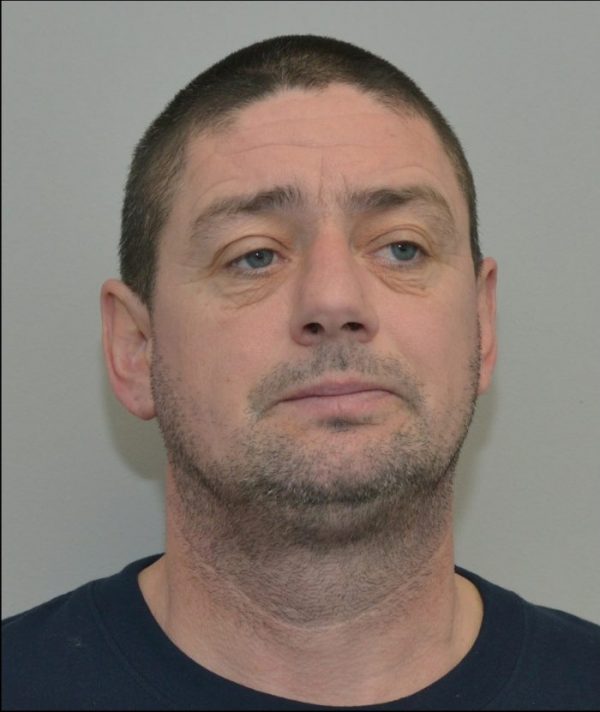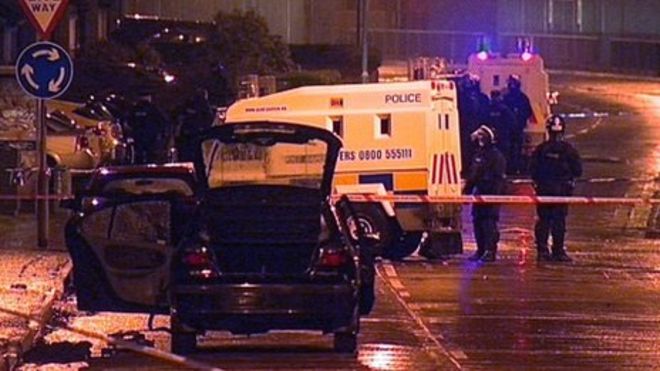
Derry dissident republican Neil Hegarty
Neil Hegarty claimed he was wrongly held in custody for a further 76 days after his licence was revoked for allegedly denying entry to install electronic monitoring equipment at his home in Derry.
But the Court of Appeal dismissed his challenge after citing his status as a convicted terrorist and relevant events at the property.
Hegarty, 53, was one of three men sentenced to ten years for possession of explosives in Derry.
Police stopped them in a car containing an anti-personnel device in Creggan in December 2012.
Hegarty served five years behind bars before being released on licence in December 2017, under conditions which included compliance with electronic monitoring.
But the following day the PSNI informed a Parole Commissioner that he failed to admit security staff to his home to fit the equipment, the court heard.
A police report alleged G4S personnel who went to the mid-terrace property at Benevenagh Gardens observed a number of men inside and were refused entry.
It was also claimed that before leaving prison Hegarty had revealed he would not be consenting to having the equipment fitted.

Scene in Derry December 2012 after police stop car with explosives on board
Hegarty launched judicial review proceedings after the Department of Justice decided to return him to prison.
His lawyers argued the move was unlawfully based on false assertions that he intended not to cooperate with the tagging condition.
They disputed the accuracy of evidence against him and questioned the description of the house security staff said they visited.
The Commissioner had unreasonably accepted unattributed, unexplained and false assertions of fact as evidence without a proper enquiry, it was contended.
In February last year a High Court judge dismissed the challenge – prompting Hegarty to mount an appeal.
Later that month he was released again following a further review of his case.
However, his legal team pressed ahead with their claims that the 76 days spent in custody during that period was an unlawful.
Ruling on the appeal, Lord Justice Stephens said it was apparent that the Single Commissioner’s decision was based on incorrect information as Hegarty had not refused to consent to the fitting of monitoring equipment immediately before his release.
However, the information about events at his home would have led her to make the same decision, the court found.
Dismissing the challenge, Lord Justice Stephens said: “We consider that given the appellant was a convicted terrorist, given the facts… and what occurred at the appellant’s home, her decision would necessarily have been the same.
“On that basis the decision of the Single Commissioner was not unlawful.”
Tags:




